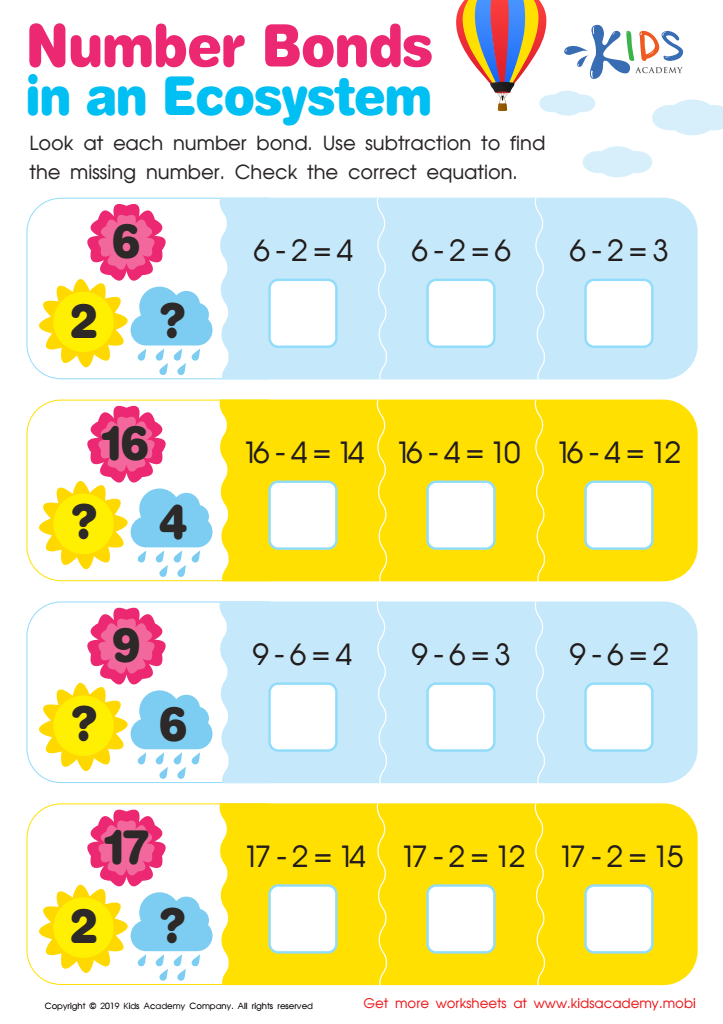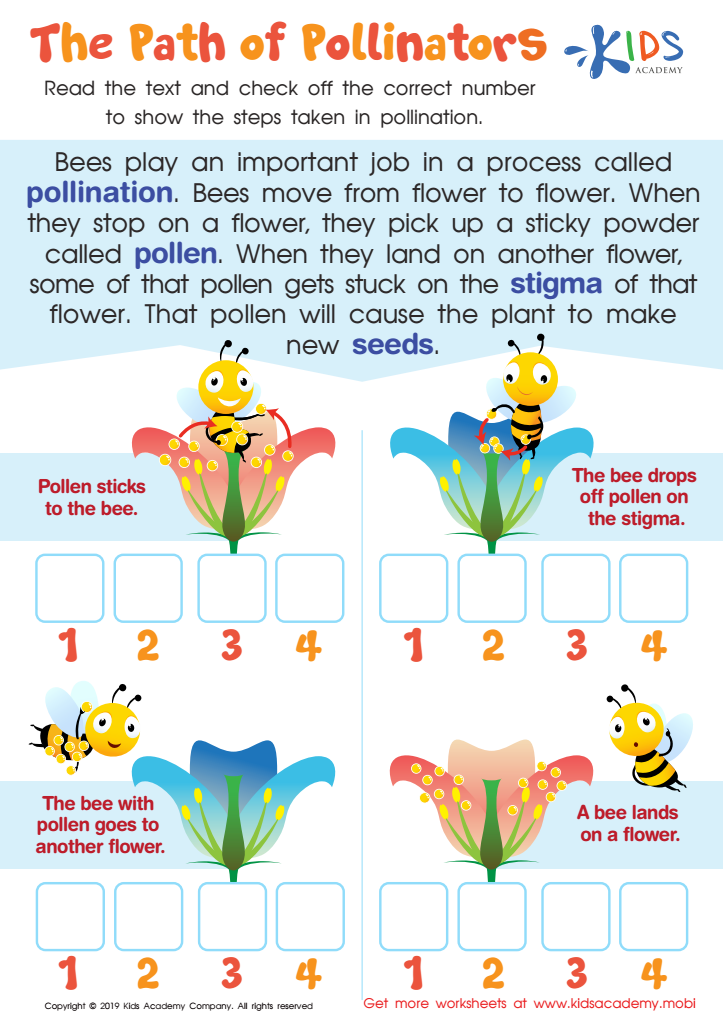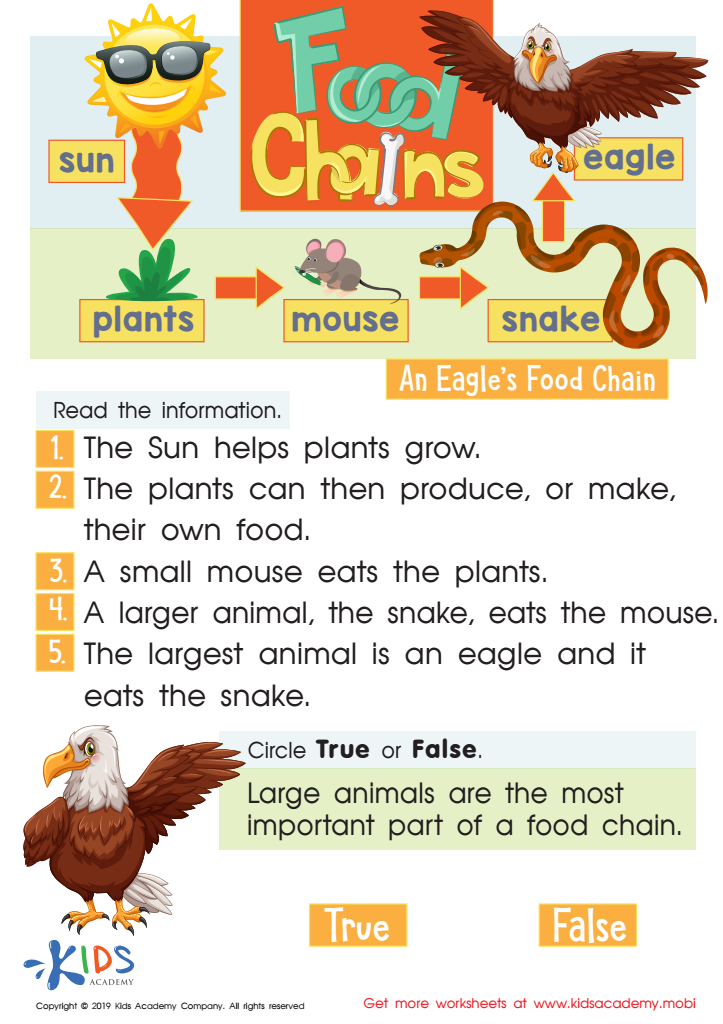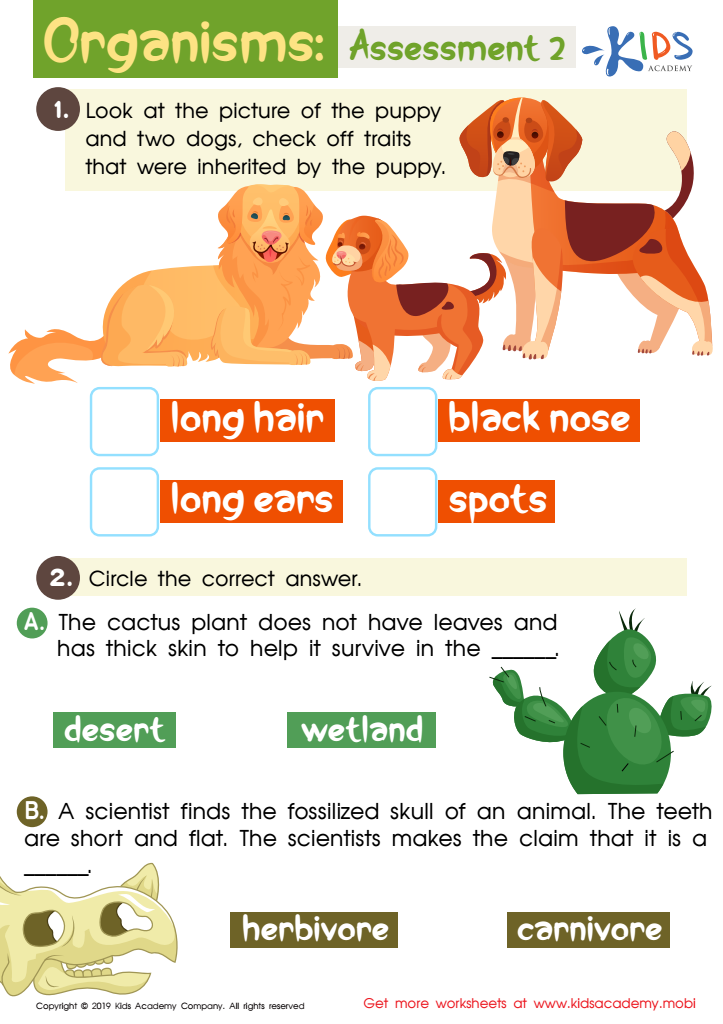Learning about ecosystems Worksheets for Ages 5-9
5 filtered results
-
From - To
Discover a vibrant collection of "Learning about Ecosystems Worksheets" designed specifically for children ages 5-9! These engaging and interactive worksheets introduce young learners to the fascinating world of ecosystems, helping them understand the delicate balance of nature and the diverse life forms within it. With fun activities that promote critical thinking and creativity, your child will explore habitats, plant and animal roles, and the importance of biodiversity. Ideal for both classroom and at-home learning, these worksheets foster curiosity and a love for the environment, making education enjoyable and impactful. Dive into learning about ecosystems today!


Pollinator Positions Worksheet


Number Bonds in an Ecosystem Worksheet


The Path of Pollinators Worksheet


Food Chains Worksheet


Organisms: Assessment 2 Worksheet
Learning about ecosystems is crucial for children aged 5-9 for several reasons. First, this age group is naturally inquisitive, and ecosystems offer a tangible way to explore their curiosity about nature. Understanding the interactions between living organisms and their environments can foster a lifelong appreciation for wildlife and the natural world.
Second, early exposure to ecosystem concepts helps instill environmental responsibility. By teaching children how ecosystems work and their importance in maintaining biodiversity, parents and teachers can empower them to become conscientious stewards of the planet. This can lead to habits that promote conservation from a young age.
Additionally, ecosystems provide a practical context for interdisciplinary learning. Children can develop skills in observation, critical thinking, and problem-solving as they explore how different factors impact their local environments. Engaging in outdoor learning can also enhance physical health, as it encourages active exploration instead of sedentary activities.
Lastly, understanding ecosystems supports social-emotional development by encouraging cooperation through collaborative projects, such as gardening or habitat restoration. In summary, the importance of learning about ecosystems for young students extends beyond academic knowledge; it fosters a sense of connection to the world around them and encourages responsible, informed future citizens.
 Assign to My Students
Assign to My Students
















